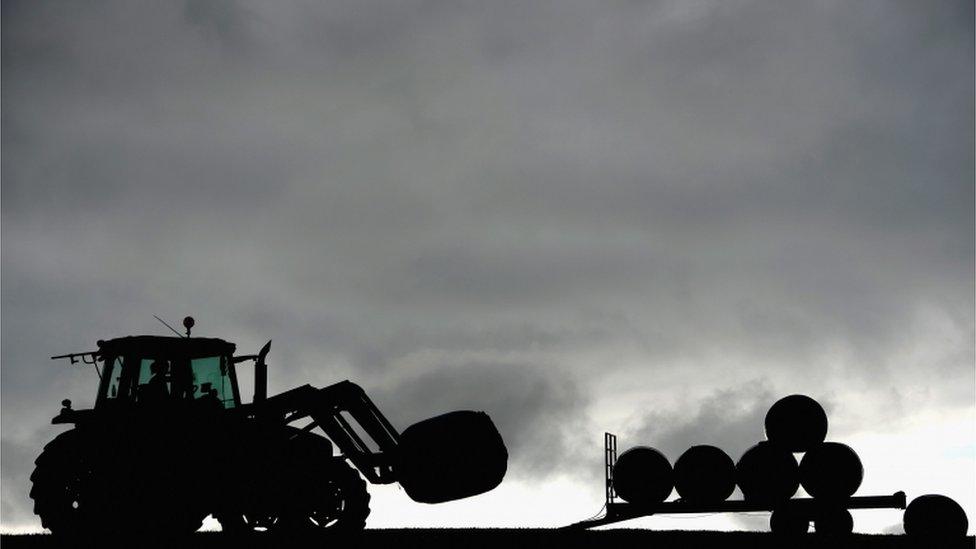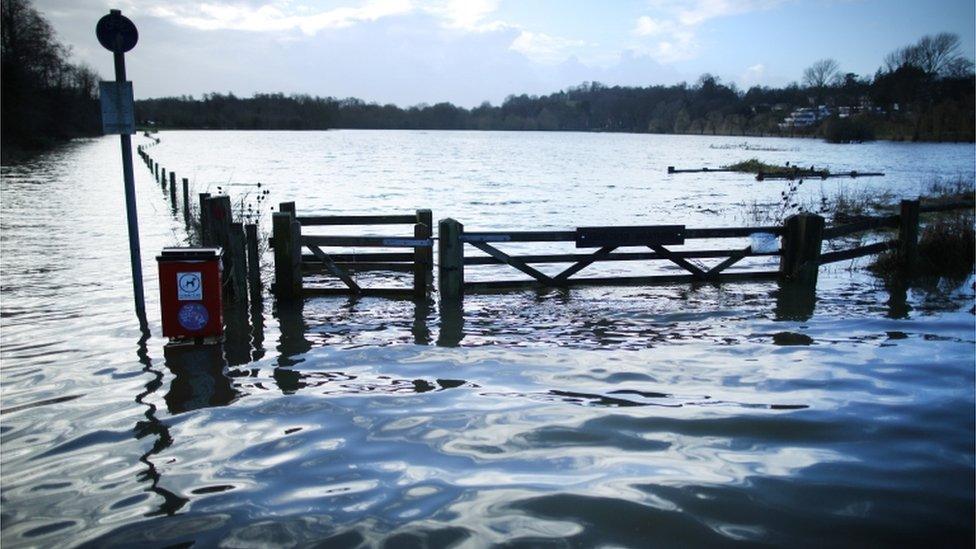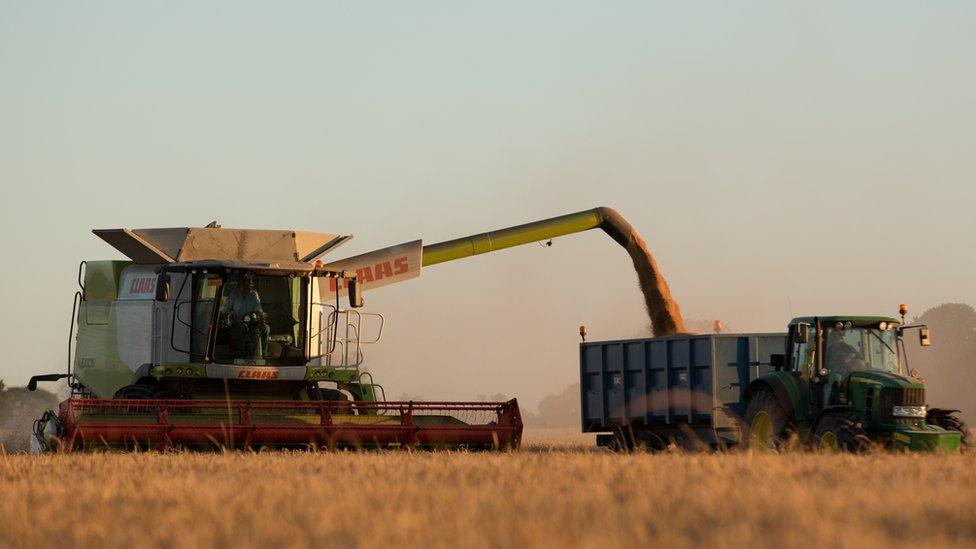Farm subsidy payment delays raise Brexit doubts, say MPs
- Published

EU subsidies account for about 50% of British farm incomes.
The government's failure to pay EU subsidies on time or help farmers hit hard by delays raises doubts about its ability to cope with Brexit, MPs say.
Delays to Common Agricultural Policy payments meant some farmers had to sell livestock to pay bills, they say.
Only 38% of England's farmers were paid on the first day possible in 2015 - in other years it had been more than 90%.
The government said major progress had since been made and it had met its 2017 target to pay 93% of farmers by March.
On 1 January 2015, the Common Agricultural Policy Basic Payment Scheme replaced the previous Single Payment Scheme - bringing with it new requirements.
'Significant errors'
The Rural Payments Agency, which distributes EU funds to farmers, went from an "all time high" - paying out 95% of farmers on day one of the scheme in December 2014 - to paying out just 38% of farmers on 1 December 2015.
By the end of March 2016, only 84% of farmers had been paid - meaning some 14,300 farmers had received no payment.
Some were still owed more than 1,000 euros (£850) nine months after they could first have been paid.
Delays were blamed on changes to the CAP scheme and a problematic IT system.
Applications had to be processed on paper, because an online application system was not ready, which "introduced a significant amount of errors... despite farmers submitting appropriate evidence".

Payments to flood-hit farmers were delayed
And new requirements under the CAP meant the agency did not hold the more detailed level of information about what type of land farmers had.
Payments made to flood-affected farmers in North Yorkshire and Cumbria had also "lagged behind the rest of England until June 2016", the MPs said.
The Public Accounts Committee report said: "The department's record of failure when developing systems to support subsidy payments to farmers does not inspire confidence in its ability to cope with the challenges associated with Brexit that lie ahead."
It called on the Department for Environment, Food and Rural Affairs to use better data and to make sure "accurate, full payments are made in a timely manner".
The committee heard that some farmers had needed to take out bank loans or sell livestock to cover their costs because payments had been delayed.
'Sorry affair'
The government was also criticised for the high number of "disallowance penalties" - fines imposed by the European Commission for late or inaccurate payments or other failures to meet the rules.
England has already incurred £642m in the penalties - about 2.98% of the total value of payments made since 2005, the fourth highest in the EU.
The committee's deputy chairman, Richard Bacon, described the late payment of subsidies as "a sorry affair".
He said: "Farmers have suffered badly from the collapse in service levels, and government has done too little to help them cope with the fallout."
EU subsidies account for about 50% of British farm incomes.
The government has promised to match EU subsidies until 2020.
Mr Bacon added: "If farmers are to be properly supported through Brexit and beyond, it is vital their interests are represented at senior level.
"In particular, the RPA must be at the table during discussions of any future subsidy payment scheme."
A Defra spokesman said: "The Common Agricultural Policy is a complex and bureaucratic scheme.
"The UK government is working to improve the system and ensure farmers get the support they are entitled to.
"We have made major progress - this year the Rural Payments Agency has already met its target to pay 93% of farmers by March 2017, and it is working hard to get outstanding payments into bank accounts.
"We are leaving the European Union.
"This represents one of many opportunities to design a better system which supports farmers and our agricultural economy, and cut unnecessary red tape."
- Published5 January 2017
